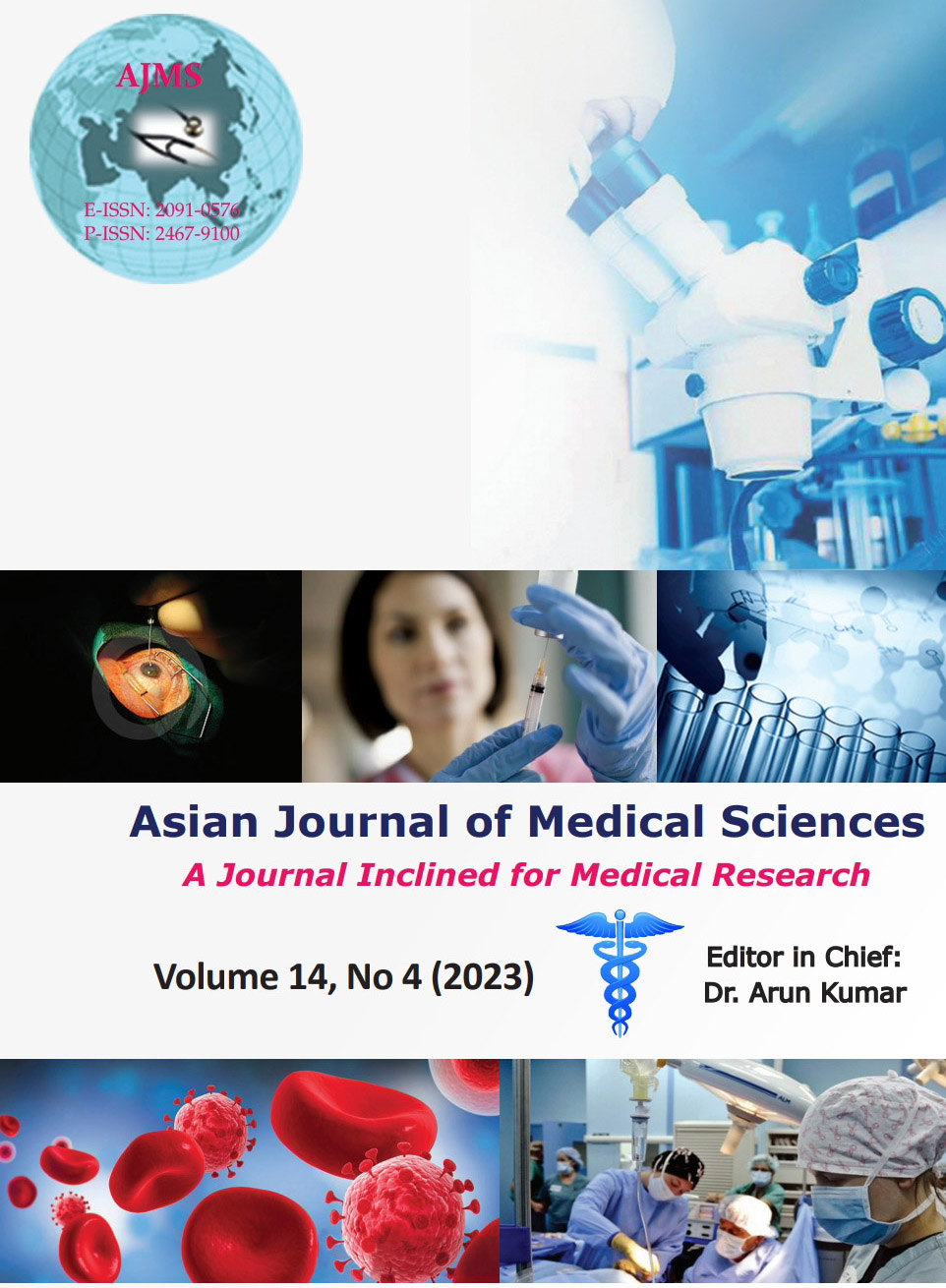A case series on allergic fungal rhino sinusitis – variable presentations
Keywords:
Allergic mucin; Allergic sinusitis; Fungal sinusitis; Endoscopic sinus surgery; CorticosteroidsAbstract
Allergic fungal rhino sinusitis (AFRS) is a non-invasive fungal sinusitis resulting from an allergic and immunologic response to the presence of extramucosal fungal hyphae in the sinuses. Defined largely by the presence of allergic fungal mucin, which is a thick, tenacious, and eosinophilic secretion with characteristic histologic findings. To present a case series on the variable presentations in patients diagnosed with AFRS. A retrospective study of 10 cases that presented to Rajiv Gandhi Government General Hospital ENT outpatient department with allergic fungal rhinosinusitis confirmed by diagnostic nasal endoscopy and CT scan who were managed successfully by endoscopic sinus surgery. In our study, out of 10 cases, nine patients had unilateral symptoms, only one patient has bilateral symptoms. Most common presentation was headache, facial pain, nasal obstruction, and nasal discharge. Some patients had variable presentations such as proptosis, oroantral fistula, blurring of vision, watering of eye, and unilateral frontal headache. On diagnostic nasal endoscopy, two patients had nasal polyposis. Complete disease clearance was achieved in nine cases by functional endoscopic sinus surgery. Patients were started on topical and oral corticosteroids, pre/postoperatively. On follow-up, only one patient had recurrence. Preventing and treating the condition, as well as its spread and complications, are greatly aided by early detection and management of AFRS. The key to enhancing the result is surgical intervention (endoscopic sinus surgery) and medical therapy (corticosteroids). Antifungals have limited role in treatment of AFRS. Longstanding unilateral Sinusitis should always raise suspicious of AFRS.
Downloads
Downloads
Published
How to Cite
Issue
Section
License
Copyright (c) 2023 Asian Journal of Medical Sciences

This work is licensed under a Creative Commons Attribution-NonCommercial 4.0 International License.
Authors who publish with this journal agree to the following terms:
- The journal holds copyright and publishes the work under a Creative Commons CC-BY-NC license that permits use, distribution and reprduction in any medium, provided the original work is properly cited and is not used for commercial purposes. The journal should be recognised as the original publisher of this work.
- Authors are able to enter into separate, additional contractual arrangements for the non-exclusive distribution of the journal's published version of the work (e.g., post it to an institutional repository or publish it in a book), with an acknowledgement of its initial publication in this journal.
- Authors are permitted and encouraged to post their work online (e.g., in institutional repositories or on their website) prior to and during the submission process, as it can lead to productive exchanges, as well as earlier and greater citation of published work (See The Effect of Open Access).




